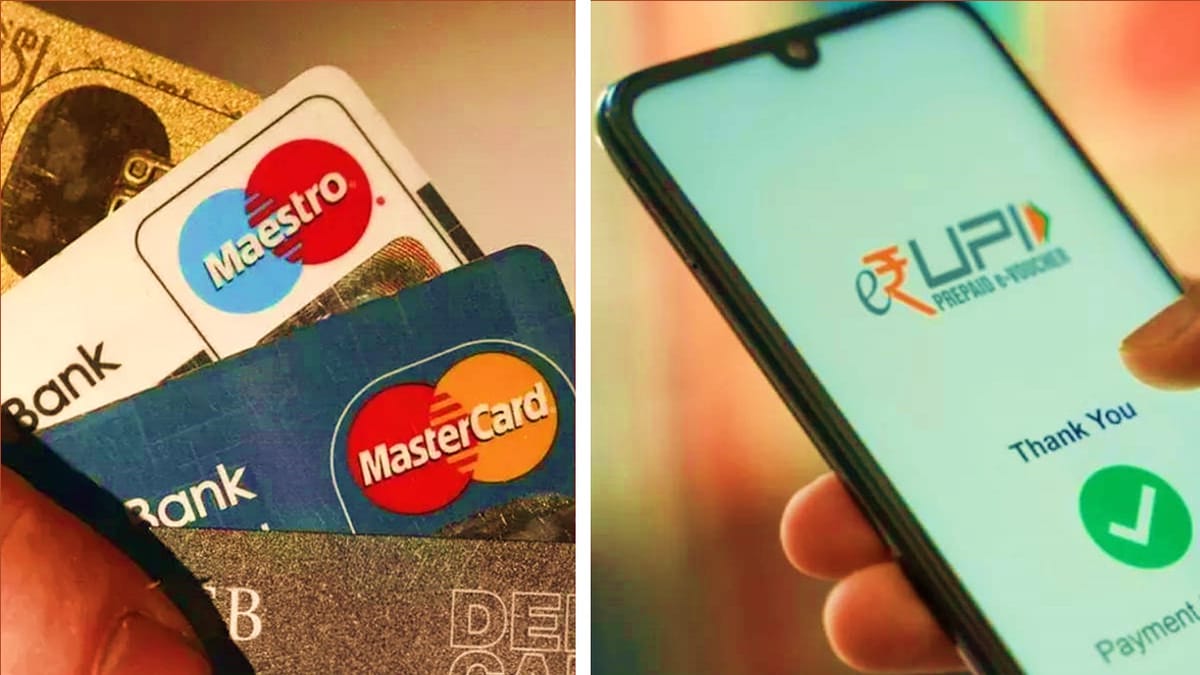Reetu | Aug 18, 2022 |

RBI invites inputs for cap on credit card fees, UPI may be charged; Check Details Here
The Reserve Bank of India (RBI) has identified credit card fee capping as one of the problems to be taken into consideration in a discussion paper on charges in the payments system.
Credit card prices may be subject to the same cap that the RBI imposes on debit card fees, and banks may choose to tack on a 30-day interest charge. The paper recommends replacing the zero fees on Unified Payments Interface (UPI) transactions with a subsidy. It has also requested opinions on whether UPI transaction fees should be set at a fixed rate or as a percentage of the transaction amount.
The discussion paper is due for feedback by October 3, 2022, according to the central bank. The central bank has never discussed controlling credit card fees before. While UPI transactions remained free in the past, the central bank has capped debit card fees.
Surcharges are also identified as a problem by the study. A surcharge is the practise of shifting credit card processing fees from the company to the customer. Some countries allow small business owners to charge credit card surcharges to customers when accepting credit card payments is not profitable for the company. Easing frictions that may result from systemic, procedural, or revenue-related concerns has been the focus of RBI’s work in the payment systems. Despite the fact that there are several middlemen in the chain of payments, the RBI said that the majority of customer complaints are about exorbitant and ambiguous fees.
According to the RBI, the objective is to provide intermediaries with the best available revenue stream while ensuring that prices for payment services are reasonable and determined by competition for clients.
It was thought helpful to conduct a detailed analysis of the various costs incurred in the payment systems by highlighting different dimensions and gathering stakeholder feedback in order to strike this balance.
The discussion paper addresses all concerns regarding fees for various payment methods, including debit cards, credit cards, and prepaid payment methods, as well as payment systems, including Immediate Payment Service (IMPS), National Electronic Funds Transfer (NEFT) system, Real Time Gross Settlement (RTGS) system, and UPI (PPIs). The feedback gathered would serve as the foundation for policy and intervention measures.
For debit card transactions, businesses now pay banks a maximum fee known as the merchant discount rate, or MDR, which is determined by the amount of business and size of the transaction. The highest fee that banks may charge is 0.9%. The RBI has defended an additional fee as a percentage of the transaction value to counteract the 30-day interest-free period that banks provide on credit card transactions. For daily updates on this and job notifications, visit our website.
In case of any Doubt regarding Membership you can mail us at [email protected]
Join Studycafe's WhatsApp Group or Telegram Channel for Latest Updates on Government Job, Sarkari Naukri, Private Jobs, Income Tax, GST, Companies Act, Judgements and CA, CS, ICWA, and MUCH MORE!"